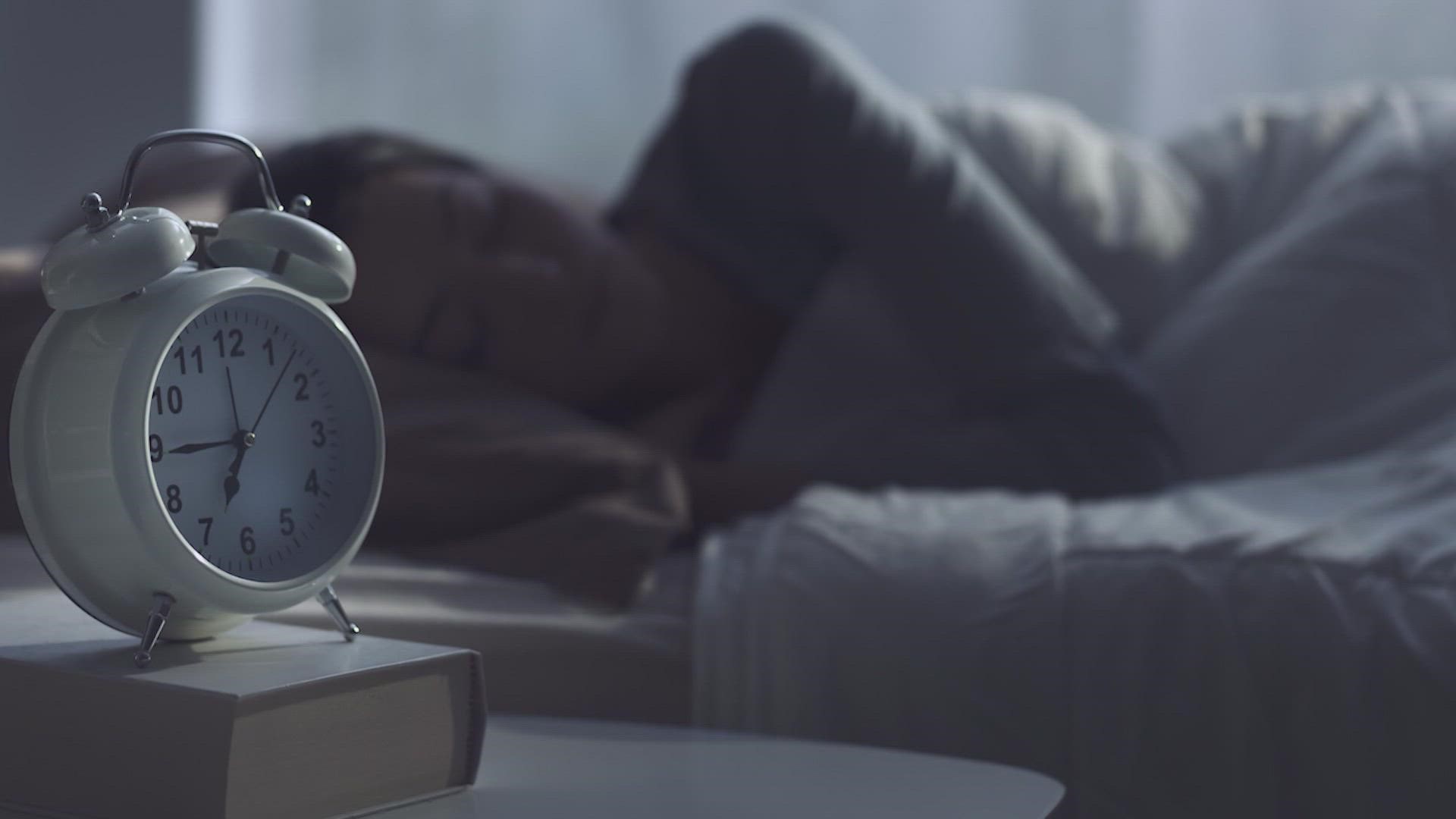DALLAS — Have you been struggling to get to sleep this summer? If you say "Yes," then you're not alone.
During the hot summer months, more people tend to report they have trouble winding down for the night. And according to the New York Times, there is some evidence that seasonal changes can impact your sleep patterns.
Daylight Saving Time
Daylight Saving Time can play a role in why you've been tossing and turning lately.
That clock change's exposing us to more sunlight later in the day. The extra lighting in the evenings can suppress our bodies production of melatonin, the hormone that tells us when to get some sleep.
According to the National Center for Complementary and Integrative Health, melatonin is produced in response to darkness and being exposed to light at night can block the production.
Summer Weather
It's needless to say these high temps can make things harder in the day, but it can also make things difficult at night.
Your body temperature should fall by a few degrees before bed to help you get deep sleep. But the hotter your home is, the harder it can be to cool down.
Sleep Advisor says the best room temperature for sleeping varies for different people, but they recommend setting your thermostat somewhere between 60-72 degrees Fahrenheit.
Ways To Get On Track
The best ways to keep your sleep intact is to set up and stick to a good bedtime schedule.
Also, give your body some time to unwind and get into the mood to sleep. Lower your lights, relax, and turn off your devices at least an hour before you plan to get some shuteye.

